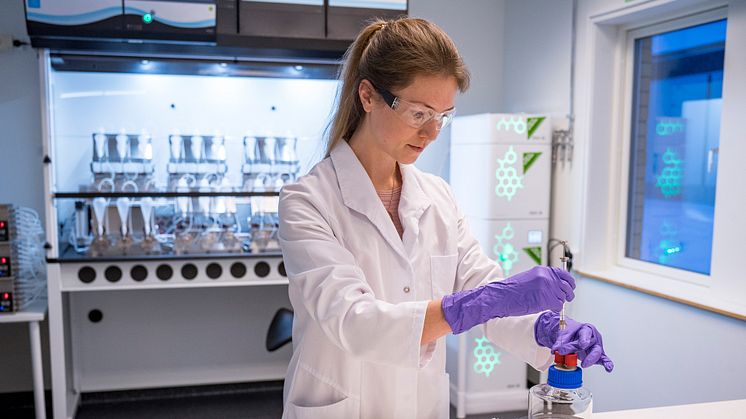
Press release -
Ejendals’ new testing methods provide additional hand protection against hazardous chemicals.
Ejendals is a market leader in personal protective equipment (PPE), and now, they have gone one step further. They can now endorse the performance of different materials against challenge chemicals using an automated permeation analysis system.
Any employer who requires its employees to work with hazardous materials or in a potentially hazardous environment, such as those working in the healthcare, industrial chemical, manufacturing, cleanroom, and defence sectors, must provide protective equipment that complies with the PPE Regulation (EU) 2016/425.
Choosing the gloves that offer the best protection against chemicals can be complicated. The chosen gloves must prevent permeation and degradation to ensure employee safety. Permeation is when a chemical passes through the glove material through molecular diffusion. This occurs even when there are no physical holes in the glove material. Degradation is the process by which the physical properties of the gloves change and are damaged after being exposed to chemicals.
Why does Ejendals have a chemical permeation laboratory?
Ejendals decided to invest in a first-class laboratory to serve its customers better when providing them with a protective glove that protects employees from the hazardous effects of challenge chemicals.
“This kind of testing is a crucial step in achieving our vision - no injuries to hands and feet,” says Bart Vervust, Chemical Compliance Manager at Ejendals.
How is permeation measured?
Permeation is measured by exposing the outer surface of a material sample to the chemical against which it is being measured.
The exposure is total and constant and emulates total immersion conditions. The material’s inner surface is monitored analytically to determine the quantity of chemicals (if any) passing through the material. Although this is invisible to the naked eye, highly sophisticated detectors in the permeation equipment can register tiny molecules that permeate the protective layer. As such, the protective performance of the gloves can be measured in real-time.
What is the “breakthrough time”?
The breakthrough time is the elapsed time between the material’s first exposure to the chemical and the permeation rate reaching a target value. The target permeation rate for tests conducted according to EN 16523-1 is one microgram of chemical passing through each square centimetre of material every minute.
The breakthrough time is plotted and recorded using software to show the material’s resistance level. When measured according to the standard method, the breakthrough time is the value by which the performance of different materials can be compared.
Ejendals’ automated permeation system
The automated systems speed up analysis time using new simultaneous testing methods to determine the glove material’s resistance to chemical permeation specified under EN 16523-1.
The optional automated challenge chemical introduction cells can test different challenge chemicals or hold the same chemical for multiple automated testing processes. In addition, the system offers Ejendals the flexibility to vary the test speed depending on a sample’s breakthrough time, which can range significantly from one minute to up to eight hours. This removes the need to wait for longer tests before obtaining complete results.
Ejendals are a team of experts
All the chemical performance data is stored in a database. With this in-house analytical equipment and expertise, this database will continue to grow at an even faster rate. The chemical protection experts can assist customers in choosing the correct PPE.
Before measuring permeation, Ejendals needs to obtain the safety data sheet for the chemical product (mixture of chemicals) or the chemical in question.
For more information, please contact:
Bart Vervust, Chemical Compliance Manager at Ejendals on +46 730 547 731 or
bart.vervust@ejendals.com
Ulrika Hallberg, Acting Marketing & Communications Director on +46 247 792 241
or ulrika.hallberg@ejendals.com
Topics
Ejendals is a Swedish company with a 100-year legacy of developing and manufacturing high-quality hand and foot protection for professionals who work in demanding environments. With approximately 440 talented employees with customers in 20 countries and guided by their vision to prevent injuries, Ejendals offers a comprehensive safety concept that includes high-quality products, training programmes and safety inspections. All with the shared objective of reducing accidents at work. Our product brands are Tegera for safety gloves and Jalas for safety shoes.


